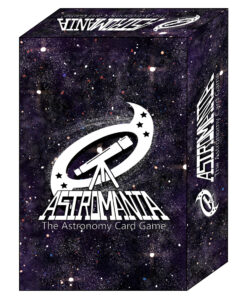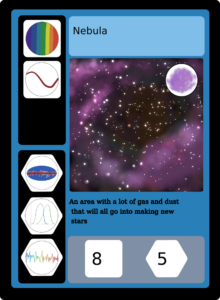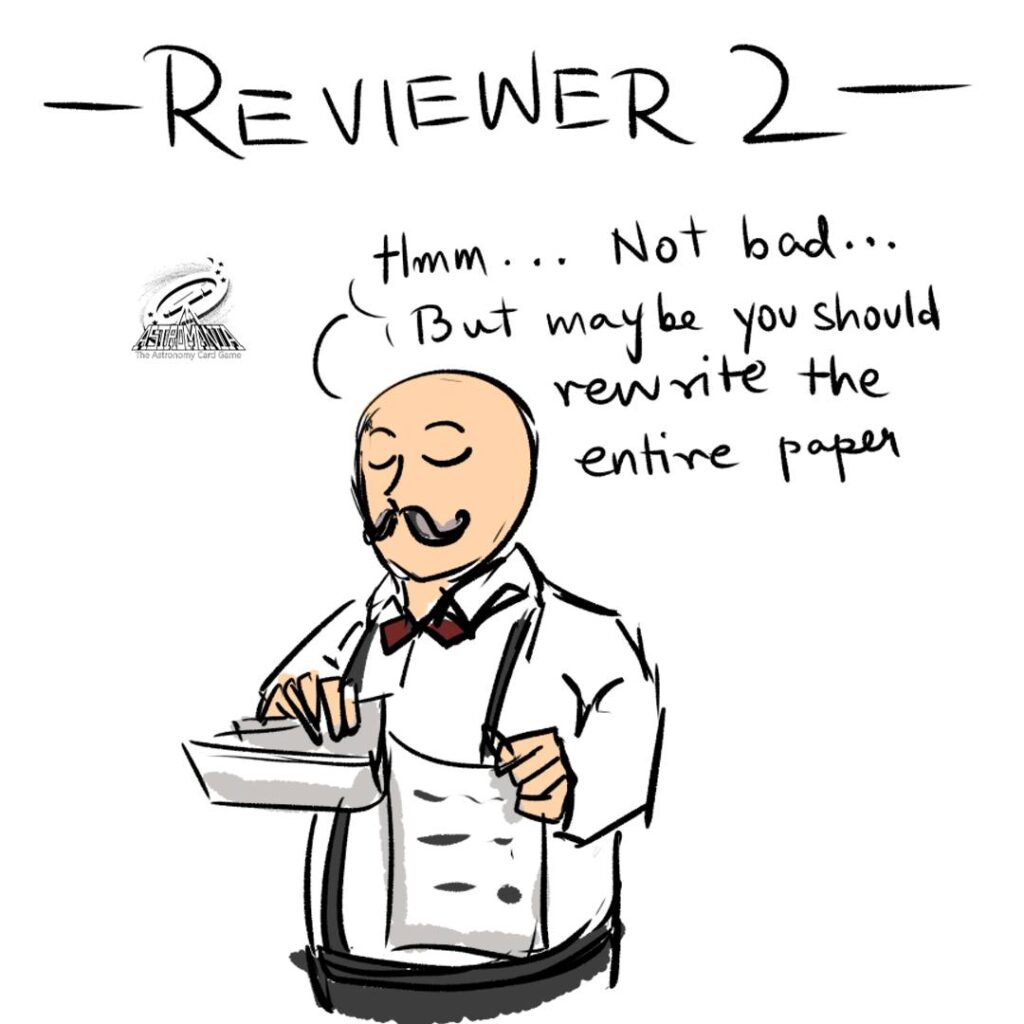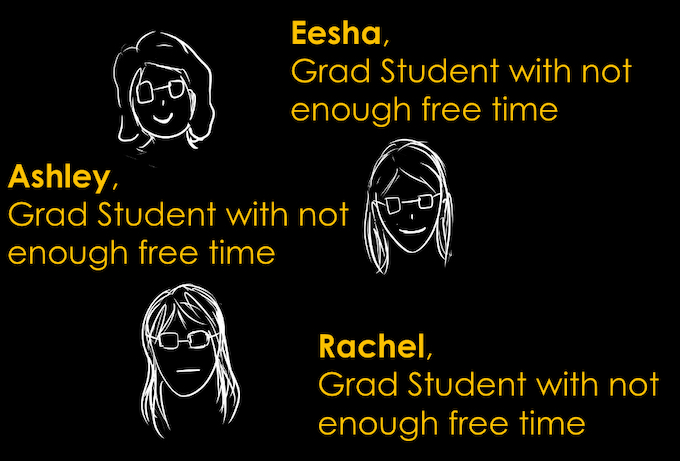
Have you ever wondered what it’s like to be a professional astronomer? Are you interested in the process of studying the universe and making scientific discoveries? Check out Astromania: The Astronomy Card Game, a new game created by three astronomy PhD students, to get an idea of the inner workings of research and learn about astronomy in a fun and interactive way!

Astromania is a strategy-based icon-matching game in which you take on the role of an astronomy student working towards a PhD. Throughout the game you work towards fulfilling ‘prompts’ – which are essentially research projects – by studying astronomical objects using a mix of strategy and luck (just like in real-life research). Clearing a prompt results in a publication, which is a standard conclusion for a real research project. Publishing three papers – a fairly typical number one expects to publish during a graduate career, although the total varies by the specific area of study and graduate program – earns you a PhD and wins the game. Of course, obtaining a PhD in real life is not quite so simple, but this does summarize the process (i.e. do research, publish papers about what you did, and compile all your work to form a thesis) fairly well.

Another way this game differs from earning an astronomy degree is that it doesn’t require any astronomy knowledge to complete it. Astromania is designed to help you learn more about astronomy and has no prerequisites. You will learn more about astronomical objects and tools as you encounter new cards during game play. Then you can make connections between information on the cards to gain bonus points. Knowledge can help you strategize to obtain more bonuses, which will help you progress a lot faster (similar to the real world, in which applying knowledge to make strategic choices will help a research project progress much faster than aimless scrambling!).
Among the most fun and unique aspects of the game are collaboration and interaction with other players. For example, you earn more points (speeding up the progress of your research) by choosing to collaborate with astronomers that specialize in techniques that are relevant to your research. The astronomers also have punny names – see if you can work them all out (perhaps that should be another way to earn bonuses). ‘Interact’ cards, on the other hand, give you opportunities to trip up or boost up other players. These cards tend to include jokes, which current and former graduate students in particular will appreciate. The ‘jokes’ are not just for fun… they also communicate many of the struggles that occur during the research process, such as bugs in your code and delays during peer-review.

The developers know the ins-and-outs of the research process well, as they are all astronomy graduate students. Or, in their own words: “Three graduate students with not a lot of time to be making a card game, to be completely honest.” The idea originally started from an outreach project focused on trading cards that highlighted the contributions of queer astronomers. The developers then decided to take their project up a notch by making a game with the cards, but not one that just involved collecting cards like Pokemon. The card project morphed into a game that not only highlighted cool astronomy facts and photos, but also showed the process of astronomy research to non-astronomers.
The game is accessible to a wide range of ages (12+ is recommended) and can be enjoyed by astronomers and non-astronomers alike. I can attest to this after playing a few rounds with other physics grad students specializing in a variety of fields, mostly outside of astronomy. Play a round or two with the rulebook at hand and you will quickly pick up the gameplay and begin to strategize. Astromania would make a fun addition to a classroom and help familiarize students with astronomy terms and the names of space missions, and maybe even inspire some to learn more.
Game Details
- Components: card decks, dice, circle shard set (for counting points)
- Play time: 30-60 minutes
- Players: 1-4
- Ages: 12+
For more information about the game and to get a copy for yourself (or as a gift for someone else), check out the Astromania website.
Feature Image Credit: the creators of Astromania
Astrobite edited by Alexandra Masegian




